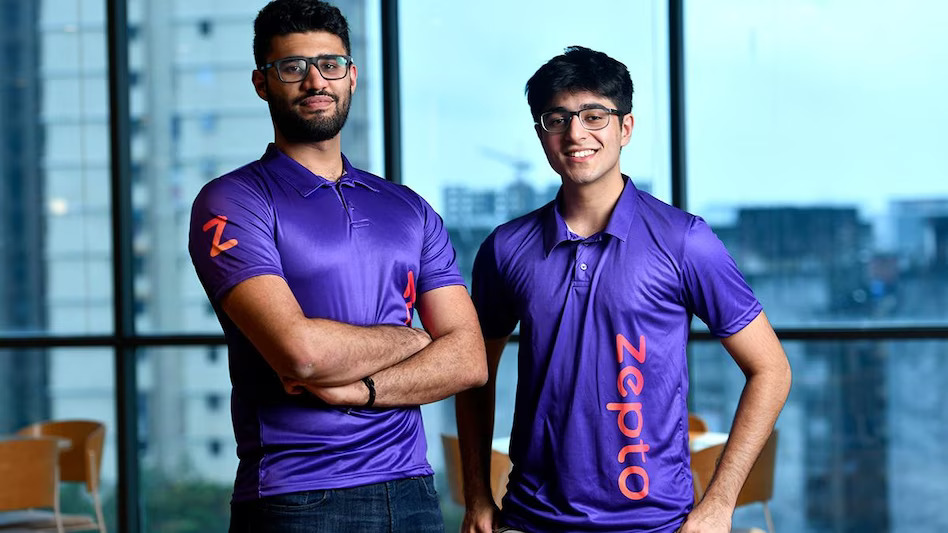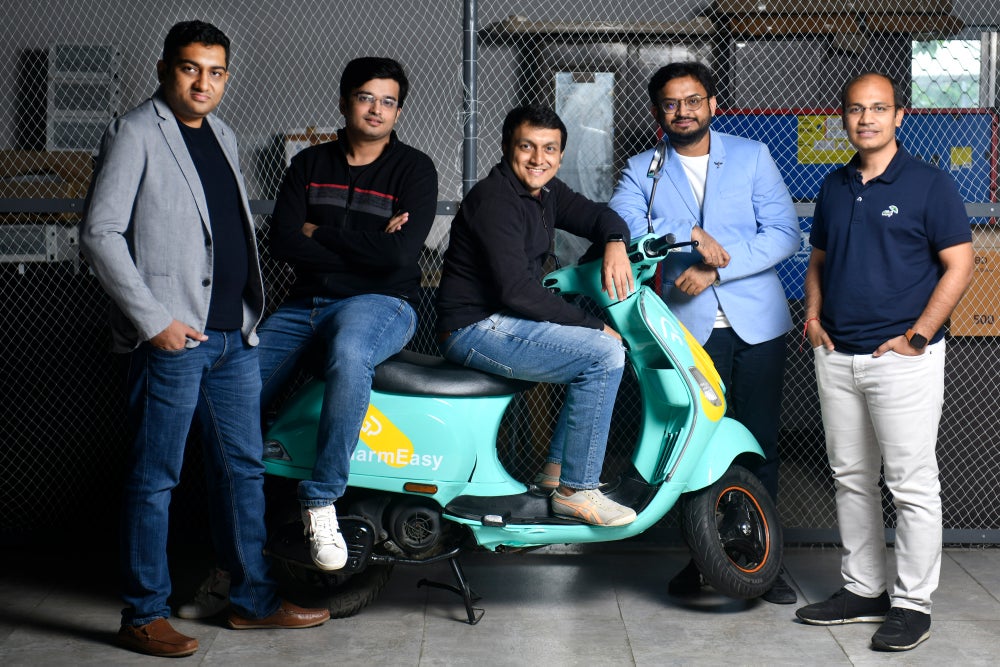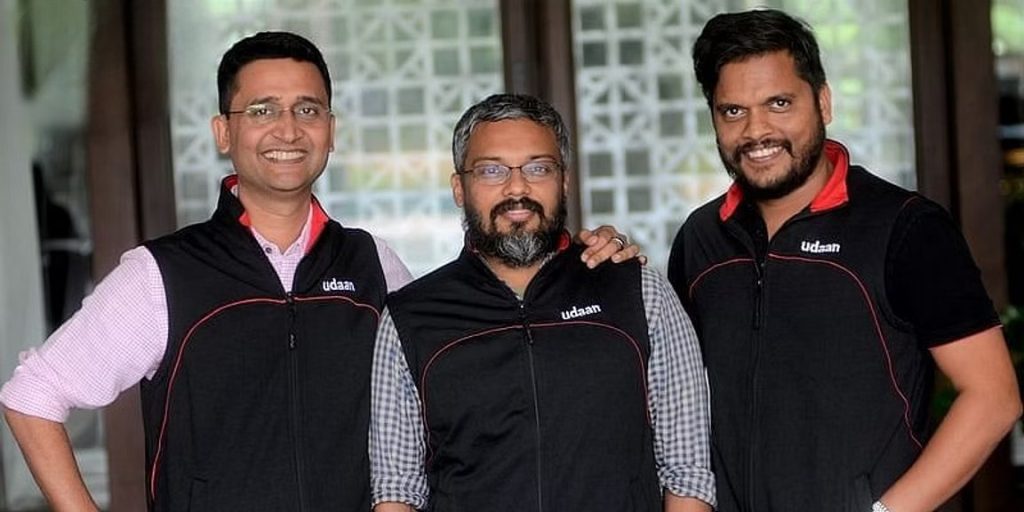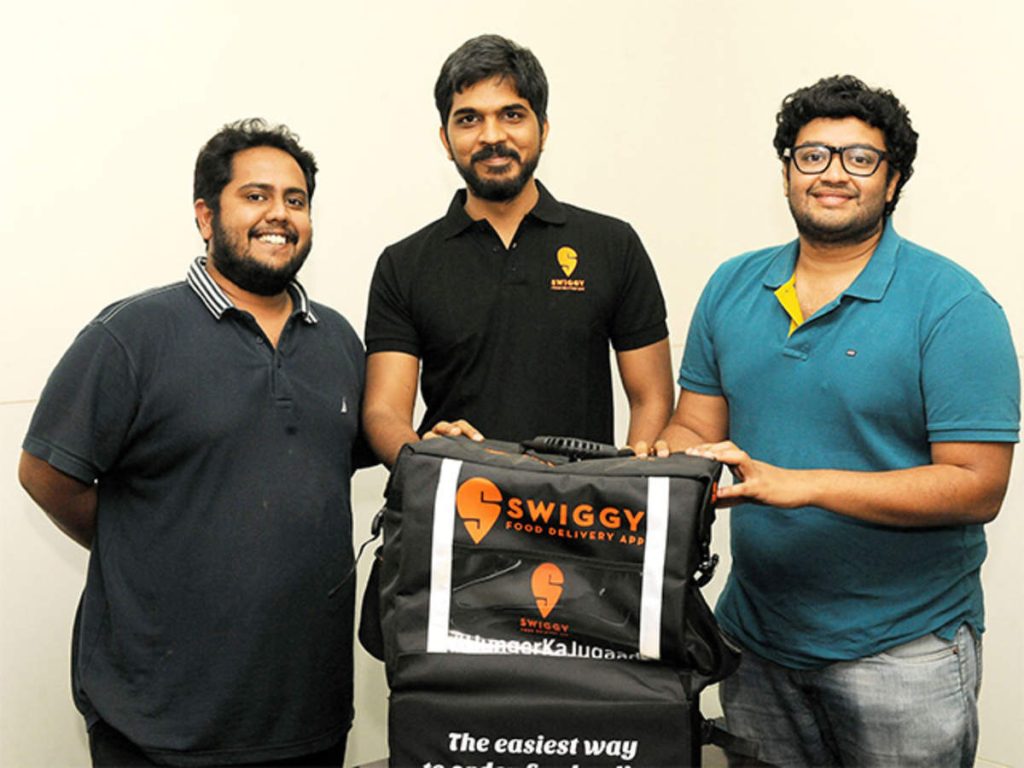- Business
- Updated on February 23, 2024
Top 10 Indian Startups You NEED to Know About

As Padmasree Warrior, CEO of Fable Group, notes, “The influx of talent and capital into India’s startup scene signals a bright future filled with breakthrough inventions.” Let us see the future of Indian Startups.
India’s startup ecosystem is booming, becoming the third largest in the world behind the US and China, with over 83,000 startups and 101 unicorns (privately held startups valued at over $1 billion). India boasts a diverse and vibrant entrepreneurial landscape. Technological advancements, internet penetration, and government initiatives support this growth.
Several startups like Ed-tech startups, Fintech startups, Greentech startups, Unicorns, and Shark Tank India are fueling this phenomenon by fostering a supportive environment. Among countless impressive contenders, here are ten noteworthy Indian startups worth keeping.
Top 10 Indian Startups
1. Zepto (2020) – Kaivalya Vohra & Aadit Palicha

Zepto specializes in hyperlocal quick commerce, delivering groceries and essentials within minutes. Operational since late 2020, the app already serves several metropolitan regions. Boasting turnarounds and seamless payment integration, Zepto stands out in the competitive delivery space. While still young, it shows promising signs of growth and disruption.
In 2020, co-founders Kaivalya Vohra and Aadit Palicha established Zepto, drawing initial funding from reputable investors such as Y Combinator, Glade Brook Capital, and Nexus Venture Partners, approximating $200 million. Zepto is a private firm and hasn’t announced any intention of going public to date.
2. CRED (2018) – Kunal Shah

Cred rewards responsible credit card usage by providing cashback incentives and exclusive benefiting members. Utilizing gameful techniques, CRED encourages timely bill payments and promotes financial literacy, distinguishing it from conventional banking applications. Backed by substantial investments, CRED aims to deepen its influence in the FinTech Startups in India.
Founded by Kunal Shah in 2018, Cred is an unlisted company that obtained $250 million in funding led by Tiger Global, placing its valuation around $4 billion. Preliminary reports indicate around $1.5 million in seed funding.
3. Meesho (2015) – Vidit Aatrey & Sanjeev Barnwal

Meesho enables small businesses to sell their goods digitally without investing heavily in inventory or marketing costs. Empowering women entrepreneurs and regional vendors, Meesho supports common languages and assists retailers in managing orders efficiently. Successfully securing Series E funding, Meesho envisions empowering millions more micro-entrepreneurs.
Vidit Aatrey and Sanjeev Barnwal initiated Meesho in 2015, receiving significant investments from Prosus Ventures, SoftBank Vision Fund, Facebook, and others, yielding approximately $1 billion in equity. It remains privately owned offering flexibility and autonomy to focus on strategic growth.
4. Groww (2016) – Lalit Keshre, Harsh Jain, Neeraj Singh, & Ishan Bansal

Groww simplifies mutual fund investments, offering zero-commission trading with accessible educational resources. Targeting first-time investors, Groww democratizes wealth management through intuitive design principles and extensive data analysis tools. Currently serving four million active users post-Series D funding, Groww is poised to become a dominant force in FinTech.
Launched in 2016 by Lalit Keshre, Harsh Jain, Neeraj Singh, and Ishan Bansal, Groww gained the support of Sequoia India, Ribbit Capital, YC Continuity Fund, and others, gathered nearly $500 million. It went public through a reverse merger with Infibeam Avenues Limited on April 6, 2022. Its stocks are traded on the National Stock Exchange and Bombay Stock Exchange.
5. PharmEasy (2015) – Dhaval Shah, Dharmil Sheth, Hardik Dedhia, & Siddharth Shah

PharmEasy facilitates medication and diagnostic test ordering by aggregating pharmacies, laboratories, and healthcare providers under one convenient platform. Focusing on patient convenience and transparency, PharmEasy ensures swift delivery, price comparisons, and professional consultations.
Now part of API Holdings Limited and listed on the National Stock Exchange and Bombay Stock Exchange under the ticker symbols ‘API’ and ‘APIL’, effective November 16, 2021, PharmEasy remains committed to improving health outcomes for all Indians.
Originated in 2015 by Dhaval Shah, Dharmil Sheth, Hardik Dedhia, and Siddharth Shah under the name 91Streets, the company attained investments from Temasek Holdings, CDPQ, and Prosus Ventures, tallying over $800 million.
6. Vernacular.ai (2016) – Sourabh Gupta & Akash Srivastava

Vernacular.AI re-branded as Skit. AI develops multilingual voice AI technology capable of processing diverse dialects, addressing communication barriers by non-English speakers. Partnering with prestigious organizations like HDFC Bank, ICICI Lombard General Insurance, and OLA, Vernacular.ai ( Skit. ai) enhances customer experience across industries. Recently acquiring Serai’s speech tech division, it expands its reach in the thriving conversational AI domain.
Commenced in 2016 by Sourabh Gupta and Akash Srivastava, formerly known as Vernacular.ai is a privately owned company that collected $14 million from SAIF Partners, IAN Fund, and Kalaari Capital before being acquired by Singapore-based Skit.ai.
7. Nykaa (2012) – Falguni Nayar

Nykaa transformed the cosmetics industry by launching an e-commerce platform dedicated solely to beauty and personal care items. Featuring a wide range of domestic and international brands, Nykaa delivers premium shopping experiences backed by reliable consumer insights. Listed publicly after a successful IPO, Nykaa maintains ambitious goals for continuous growth.
Falguni Nayar established her beauty e-commerce in 2012 with nearly $200 million in funding from private giants such as Steadview Capital and Lighthouse Funds preceding its October 2021 IPO. It became a publicly traded company on November 10, 2021, getting listed on the NSE and BSE under ‘NYKAA’ and ‘NYKA’, respectively.
8. Udaan (2016) – Sujeet Kumar, Vaibhav Gupta, & Amod Malviya

Udaan streamlines business-to-business transactions between suppliers, wholesalers, and retailers across various segments, reducing operational complexities. Leveraging advanced technologies, Udaan optimizes supply chain efficiencies and empowers MSMEs in remote locations. Securing considerable investments, Udaan works diligently to serve every corner of India effectively.
Udaan remains a privately held unicorn, having shelved its proposed IPO in fluctuating market conditions in September 2022. Emerged in 2016 by Flipkart veterans Sujeet Kumar, Vaibhav Gupta, and Amod Malviya, Udaan scored investments from DST Global, Lightbox Ventures, and Altimeter Capital at almost $1.2 billion.
9. Dream11 (2008) – Harsh Jain & Bhavit Sheth

As India’s premier fantasy sports application, Dream11 allows users to create virtual teams comprising real athletes competing in live events. Capitalizing on rising interest in cricket, kabaddi, football, basketball, hockey, and baseball, Dream11 engages fans actively while generating sizable revenues. Acquired by Tencent and later merged with Sports Technologies, Dream11 persistently refines its offerings to captivate audiences further.
Harsh Jain and Bhavit Sheth inaugurated Dream11( private enterprise) in 2008 and gathered more than $700 million from contributors, including Chinese conglomerate Tencent Holdings Ltd. and multi-stage venture capital firm Multiples Alternate Asset Management. Suspected initial investment figures are close to $100,000.
10. Swiggy (2014) – Sriharsha Majety, Rahul Jaimini, & Nandan Reddy

Swiggy revolutionized food delivery in India by introducing doorstep drop-offs for restaurants lacking delivery infrastructure. In response to Swiggy’s speed, reliability, and variety, rivals like Zomato responded in kind.
Following multiple funding rounds, Swiggy diversified into express delivery, cloud kitchens, and pickup points, broadening horizons beyond mealtime needs.
Introduced in 2014 by Sriharsha Majety, Rahul Jaimini, and Nandan Reddy, Swiggy obtained contributions from Accel, Naspers, and other renowned investors, with total assets beyond $3 billion.
Swiggy to date remains a privately owned unicorn with no imminent listing scope. Instead, it focuses on expanding its business lines and fortifying its position in the highly competitive food delivery sector.
Let’s delve into the vibrant world of Indian startups through a detailed table distribution, highlighting their groundbreaking achievements and prospects
| Rank | Company | Year | Founders | Product/ Service | Unique Value Proposition | Impact and Achievements | Future Outlook |
|---|---|---|---|---|---|---|---|
| 1 | Zepto | 2020 | Kaivalya Vohra, Aadit Palicha | Hyperlocal Quick Commerce | Fast Delivery Times, Seamless Payment Integration | Serves Several Metros, Rapid User Adoption | Further Market Penetration, New Segments |
| 2 | CRED | 2018 | Kunal Shah | Financial Platform w/ Cashback Incentives | Encourages Responsible Credit Card Use, Gamification | Substantial Investments, Active Membership Base | Strengthen Presence, Enhanced Features |
| 3 | Meesho | 2015 | Vidit Aatrey, Sanjeev Barnwal | Social Commerce Platform | Supports Small Businesses, Women Entrepreneurs, Regional Vendors | Four Million Monthly Active Users, Series E Round | More Micro-Entrepreneurs, Geographic Expansion |
| 4 | Groww | 2016 | Lalit Keshre, Harsh Jain, Neeraj Singh, Ishan Bansal | Mutual Fund Investment App | Zero Commission Trading, Educational Resources | Four Million Registered Users, Series D Funding | Continuous Improvement, Scaling Operations |
| 5 | PharmEasy | 2015 | Mikhil Innani, Dharmil Sheth, Hardik Dedhia, Siddharth Shah | Healthcare Products & Diagnostic Tests | Transparent Prices, Professional Consultations | Merged with API Holdings, Three Billion USD Valuation | Streamlined Processes, Wider Reach |
| 6 | Vernacular.ai | 2016 | Sourabh Gupta, Akash Srivastava | Multilingual Voice AI Technology | Addresses Communication Barriers, Diverse Dialect Support | Prestigious Clients, Speech Tech Division Acquisition | Deeper Industry Integration, Cross-Linguistic Solutions |
| 7 | Nykaa | 2012 | Falguni Nayar | Beauty & Wellness Online Retail Store | Premium Shopping Experience, Reliable Consumer Insights | Publicly Listed, Expanded Into Brick-And-Mortar Stores | Maintaining Momentum, International Markets |
| 8 | Udaan | 2016 | Sujeet Kumar, Vaibhav Gupta, Amod Malviya | B2B Trade Platform | Simplifies Supply Chain Management, Optimizes Efficiency | Considerable Investments, Wide Range Of Goods And Services | Broader Horizons, Effective Coverage |
| 9 | Dream11 | 2008 | Harsh Jain, Bhavit Sheth | Fantasy Sports Application | Engages Fans, Live Events, Real Athletes | Tencent Ownership, Revenue Generation | Attracting New Users, Enriching Experiences |
| 10 | Swiggy | 2014 | Sriharsha Majety, Rahul Jaimini, Nandan Reddy | On-Demand Food Delivery Service | Speed, Reliability, Restaurant Choice | Multiple Funding Rounds, Expanded Beyond Food Delivery | Express Deliveries, Cloud Kitchens, Pickup Points |
Why Are Startups Increasing in India?
India’s vibrant startup community owes much of its success to favorable policies implemented by the government, including tax exemptions, incubators, and funding schemes designed for early-stage enterprises.
Arvind Panagariya, former Vice Chairman of NITI Aayog, states, “India’s commitment to fostering innovation and supporting entrepreneurial endeavors creates fertile ground for transformative ideas.”
Additionally, annual startup competitions foster healthy rivalry, pushing boundaries creatively and technologically. Under Prime Minister Narendra Modi’s leadership, the Startup India initiative has played a pivotal role in establishing a robust ecosystem conducive to groundbreaking ideas, ultimately contributing to unprecedented levels of prosperity throughout the country.
Also Read: Shark Tank India Judges Net Worth in Rupees
FAQs:
1. How does the Indian government help startups (any schemes)?
The Indian government supports startups primarily through policy implementation and various assistance programs. One such scheme is the Stand-Up India program, aiming to promote entrepreneurship among marginalized communities, including women and minorities.
Another example is the Startup India Initiative, launched in 2016, offering tax breaks, funding, incubation centers, and networking events. Furthermore, the Atmanirbhar Bharat Scheme allocates INR 1 lakh crore (approximately USD 13.4 billion) to encourage self-reliance among startups and MSMEs.
2. How many Indian Startups are there?
Predicting the exact number of startups in India until 2024 isn’t feasible due to the rapidly evolving nature of the ecosystem. That said, assuming steady growth rates similar to the past few years, the count would likely surpass 70,000 to 80,000 by then. Remember that official numbers only account for formally recognized startups registered with the Department for Promotion of Industry and Internal Trade (DPIIT).
3. What is the average investment in startups required?
The average investment for starting a business depends upon the specific industry, target audience, location, operating expenses, and initial team composition. Generally, angel investor networks often provide seed funding ranging from INR 10 lakh (USD 13,400) to INR 1 crore (USD 134,000). Later stages might see investments reaching tens or hundreds of millions depending on the startup’s traction and potential for scale.
4. What are the future trends for the Indian startup ecosystem?
Some prominent future trends in the Indian startup ecosystem involve greater adoption of artificial intelligence, machine learning, and IoT technologies in everyday life.
Other areas experiencing growth include agri-tech, health-tech, clean-tech, and green energy projects. Moreover, the ongoing shift toward digital transformation accelerated by the COVID-19 pandemic presents ample opportunities for tech-enabled startups in finance, education, entertainment, and communications.
Conclusion:
Stay tuned for updates regarding the best Indian startup ecosystem in 2024. As the industry continues to grow and mature, we can expect to see new developments, technological advancements, and innovative solutions shaping businesses in India and beyond.
Meanwhile, keep an eye on the top 10 Indian startups mentioned as they leave their mark on the entrepreneurial landscape in the coming years. Remember, the future belongs to those who dare to dream big and take action to bring their visions to life.
Happy exploring!
Join the discussion
Related Articles
No results available
ResetTrending Articles


- General
- Updated on February 23, 2026


- General
- Updated on February 20, 2026


- General
- Updated on February 18, 2026


- General
- Updated on February 17, 2026


- General
- Updated on February 10, 2026


- General
- Updated on February 14, 2026


- General
- Updated on February 7, 2026


- General
- Updated on February 5, 2026


- General
- Updated on February 2, 2026


- General
- Updated on January 29, 2026
No results available
Reset


